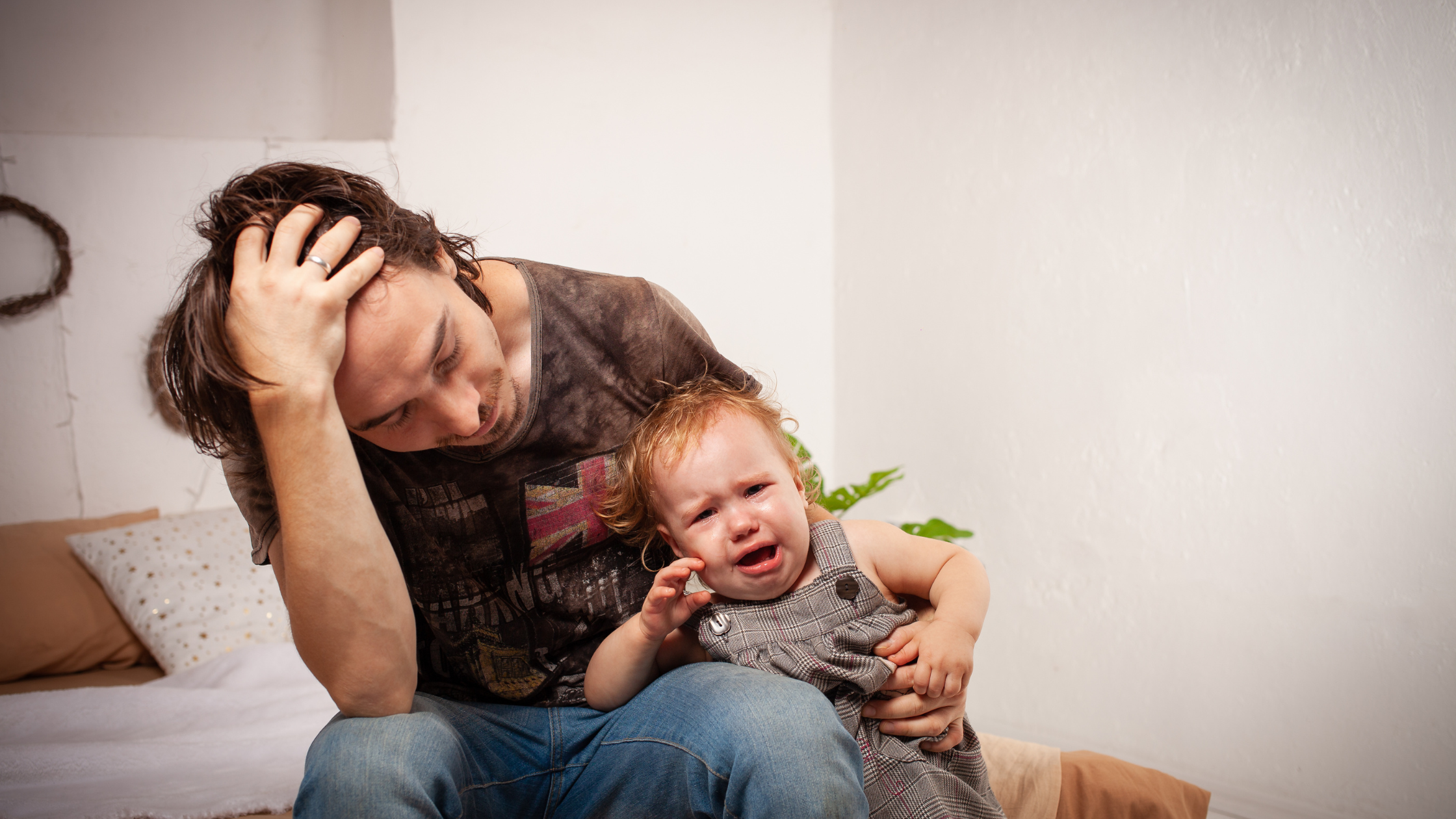Your child just threw their second plate of food. Your child is crying in the grocery store, unwilling to move. Your child is overtired and won’t settle down. We’ve all been there. Your child’s emotions are rising and you feel like you’re going to lose it.
But stop. Don’t do that. You have to be the ideal parent and stay calm. No matter what, you can’t lose your temper, you can’t get frustrated, and you can’t let your guard down. That’s what society – and the positive parenting style – tells us, anyway, and it’s an unrealistic expectation.
While beneficial for children, a recent study published in the Journal of Social and Personal Relationships found that positive parenting (or showing more positive emotions and controlling negative ones) can actually lead to parental burnout. While more research needs to be done on this area, it’s clear there needs to be a better balance between parents’ interests and child well-being (1).
Acknowledge The Limitations Of Parenthood
You’re a parent, but you’re also human – and you’re going to experience your own emotions. If your child continues to push your boundaries or has a temper tantrum, you may feel embarrassed, angry, frustrated, or overwhelmed. This is normal. It would be strange not to feel something.
“When we start to recognize that being dysregulated is a part of life and not necessarily a problem to fix, then we can start to come up with ways to move through it more easily,” says Sarah Bren, PhD, clinical therapist in New York.
While some parents assume their job is to remain calm at all times, Dr. Bren says that it’s really to keep their children safe. Maybe your child is getting mad and throwing things. As a parent, you need to make sure that the child is safe, first and foremost. After that, you can focus on controlling your own reaction through awareness and self-regulation.
Know that you may not be able to stop yourself from getting mad, Dr. Bren explains, but you can start to pay attention to what’s happening in the moment and how you’re feeling about it. You may think, “my child is out of control,” “my child is being disrespectful,” “this is unacceptable,” but consider if your child is doing this on purpose, if your child is having a hard time, and then notice how you’re feeling about it.
If you can start to recognize your own feelings – “I’m frustrated” or “I’m really embarrassed, now angry,” – you can start to turn down the volume of your own emotional response. When you practice emotion regulation skills it impacts your parenting behaviors and your child’s socioemotional development, according to a meta-analytic review in the International Journal of Behavioral Development.
When a parent is able to demonstrate better emotional regulation skills – such as managing negative moods or using cognitive reappraisal, they tend to be warmer and less hostile with their children. However, science shows the association between parents’ emotion regulation and children’s externalizing behavior is less clear (2).
When Co-Regulation Strategies Don’t Work
When a child is dysregulated, it’s “like a wave,” says Dr. Bren. “It’s not realistic to try and stop a wave from coming.”
You can try and use co-regulation strategies – such as validating your child’s feelings, lowering your voice, talking calmly to them, staying close by – to calm your child’s nervous system and turn off their threat response, but this may not work. Depending on the child, it could actually make the situation worse.
“If your child is having a 10 out of 10 meltdown, they’re in a state of fight or flight,” Dr. Bren explains, and you getting close to them and acknowledging their feelings may be adding more noise and stimulation, causing them to move up on the scale rather than down. This is when you might be thinking, “I’ve tried everything and nothing works.”
If your child seems to be getting worse and you feel like you’re going to lose it, then consider your options. If another adult is in the house, then let them know you need to tap out. If your child’s safety isn’t a concern and you’re at home alone, Dr. Bren says, then you may decide to step away for a few minutes. You can let your child know, “I hear you, you’re upset, but I’m getting overwhelmed and I need a moment. I’ll be back in a few minutes.”
Leaving the room doesn’t make you a bad parent – and it’s not a sign of abandonment – but how you leave the room is important, says Dr. Bren. Saying “I’m done,” “I can’t do this anymore,” is likely going to make the situation worse, but letting your child know that you’re upset and you need to take a break is a healthy model of self-regulation..
How To Respond To Your Childs’ Needs
Practicing parental nurturance or parental sensitivity is an important part of parenting. Science shows that children of sensitive, nurturing parents have fewer mental health problems, better social competence, and higher cognitive functioning (3).
Parental sensitivity is the act of being attuned to your child’s signals – and being able to accurately interpret and respond to your child’s needs promptly and appropriately. While this is most important in the first three years of your child’s life, it’s also beneficial in the toddler and elementary-school years.
You may be wondering:
-
How do I practice parental sensitivity?
-
What if co-regulation doesn’t work?
-
What if I lose my temper?
-
What if I say something I later regret?
-
Does this make me a bad parent?
-
Is my child going to experience long-term problems because of this?
Dr. Bren suggests setting a timer for five minutes. During that time, pay attention to your child. Notice how they interact with the world around them, how they pick things up, what their body does. If your child is older and able to communicate with words, ask them about their emotions, especially later after a temper tantrum occurs. See if you can figure out why they got frustrated or upset and how you might prevent that or respond to it in the future.
If you accidentally lose it – and say something you don’t mean to say – wait until both you and your child have calmed down and let the child know that you’re sorry for the way you reacted. The repair process that follows a difficult parent-child interaction is what matters most in this situation. The act of repairing can lead to better emotion regulation in children and fewer behavior problems in preschool (4).
Repeatedly losing it, though, can be problematic for your parent-child relationship and your child’s ability to regulate. If you find that you’re unable to stop yourself, consider meeting with a mental health professional to better understand why this is happening and how you can better regulate your emotions.
Just know, you don’t have to be perfect all the time – and you don’t have to hide your emotions. Your child needs to know that ups and downs are a normal part of daily life.
Want to learn more? Listen to the podcast episodes on managing emotional triggers and understanding the link between attachment and discipline featuring Dr. Sarah Bren.
Sources:
1. https://orbi.umons.ac.be/bitstream/20.500.12907/43005/1/Lin2021.pdf
2. Gottfried, J. A., & Cusick, M. (2021). The Complexities of Effective Learning: Exploring Online Learning Environments During the COVID-19 Pandemic. Educational Technology Research and Development, 69(10), 4947–4966. https://doi.org/10.1177/01650254211051086














